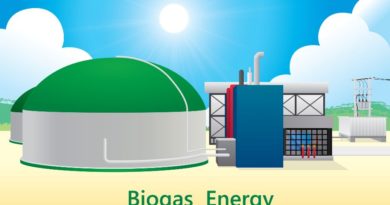Anaergia will supply organic waste to biogas solution to PepsiCo
The biogas system supplied by Anaergia will convert about 50,000 tons per year of organic residues produced at the facility into renewable natural gas to be used within the facility in Columbia.

As the multinational conglomerates are steaming towards decarbonisation in its processes to bolster sustainable growth, food giant PepsiCo is taking sharp turn towards bioenergy. In an important development Anaergia Inc. has announced that its Canadian subsidiary, Anaergia DB Inc., has entered into an integrated technology supply contract with PepsiCo Alimentos Z.F. LTDA under which it will provide high-efficiency digestion technology and integrated biogas conditioning and upgrading technology to the company.
The supply will be made at PepsiCo’s food production facility in Funza, part of the Metropolitan Area of Bogotá, Colombia.
The biogas system supplied by Anaergia will convert about 50,000 tons per year of organic residues produced at the facility into renewable natural gas to be used within the facility. This will help PepsiCo in offsetting the use of fossil natural gas from the grid and reducing greenhouse gas emissions by up to 3,700 tons per year of carbon dioxide.
“By utilizing Anaergia’s solutions at our Funza facility, PepsiCo will be generating renewable natural gas from our residue streams and reducing our carbon footprint,” said Jim Andrews, Chief Sustainability Officer at PepsiCo. “This project is another transformative initiative by PepsiCo, as we progress towards our carbon reduction commitment,” added Andrews.
“South America is now the third continent where Anaergia is providing systems to PepsiCo facilities,” said Assaf Onn, CEO of Anaergia. “By providing our proven solutions to create renewable fuel and energy from organic waste, we are helping our customers achieve their environmental and economic objectives globally,” stated Onn.
Speaking about Anaergia, the company was created to eliminate a major source of greenhouse gases (“GHGs”) by cost effectively turning organic waste into renewable natural gas (RNG), fertilizer and water through the use of proprietary technologies.
PepsiCo Colombia is the third largest of PepsiCo’s businesses in Latin America, after Brazil and Mexico. The company has been serving consumers since 1947, with a food and beverage portfolio of more than 20 brands. PepsiCo uses biogas in several of its factories/facilities to reduce its environmental impact and use of fossil fuels. In India also, PepsiCo has set up a biogas plant at its Frito-Lay manufacturing facility in Pune, Maharashtra, utilising biodegradable waste to generate biogas. This biogas powers the production of the snack Kurkure.




